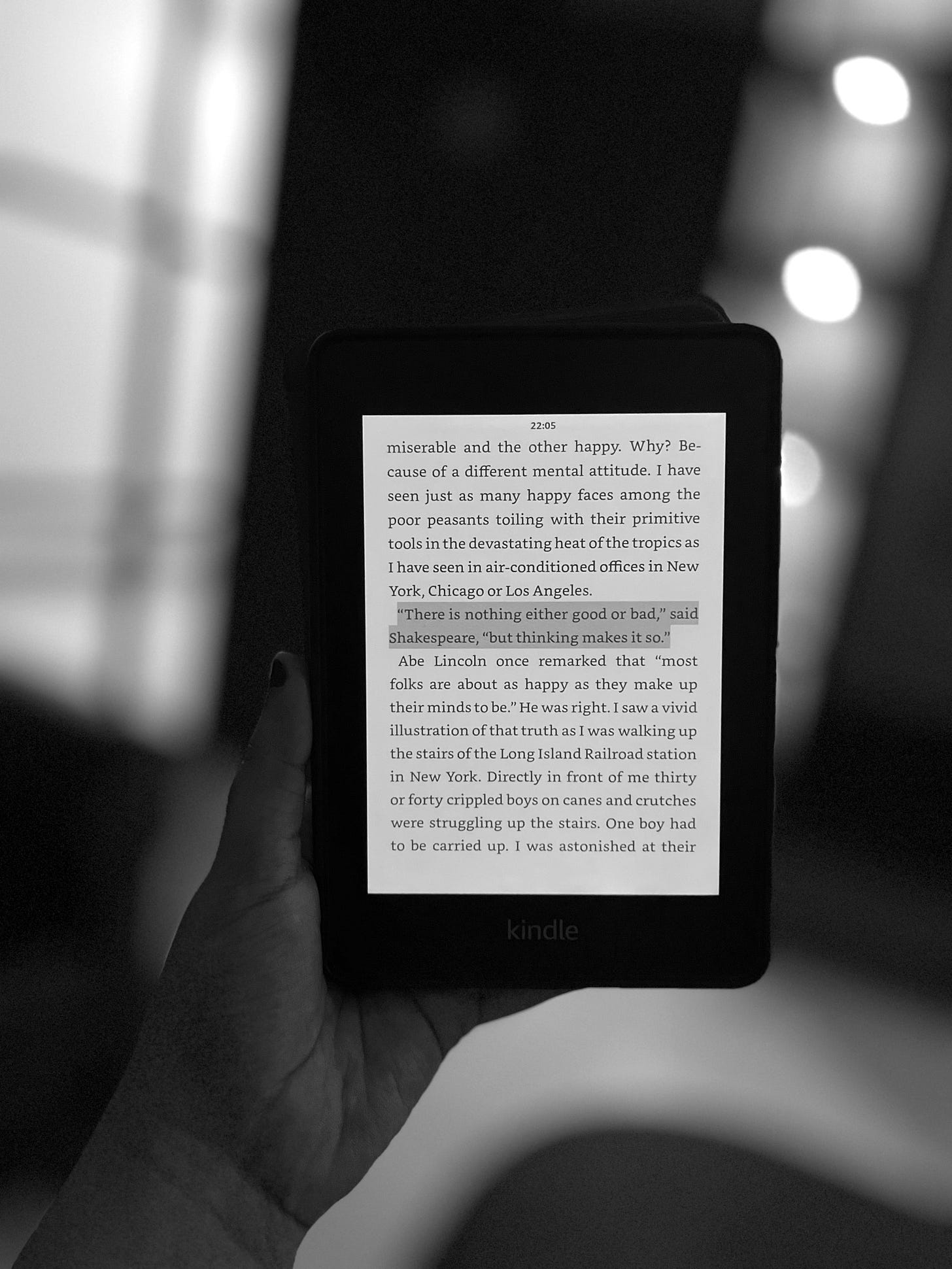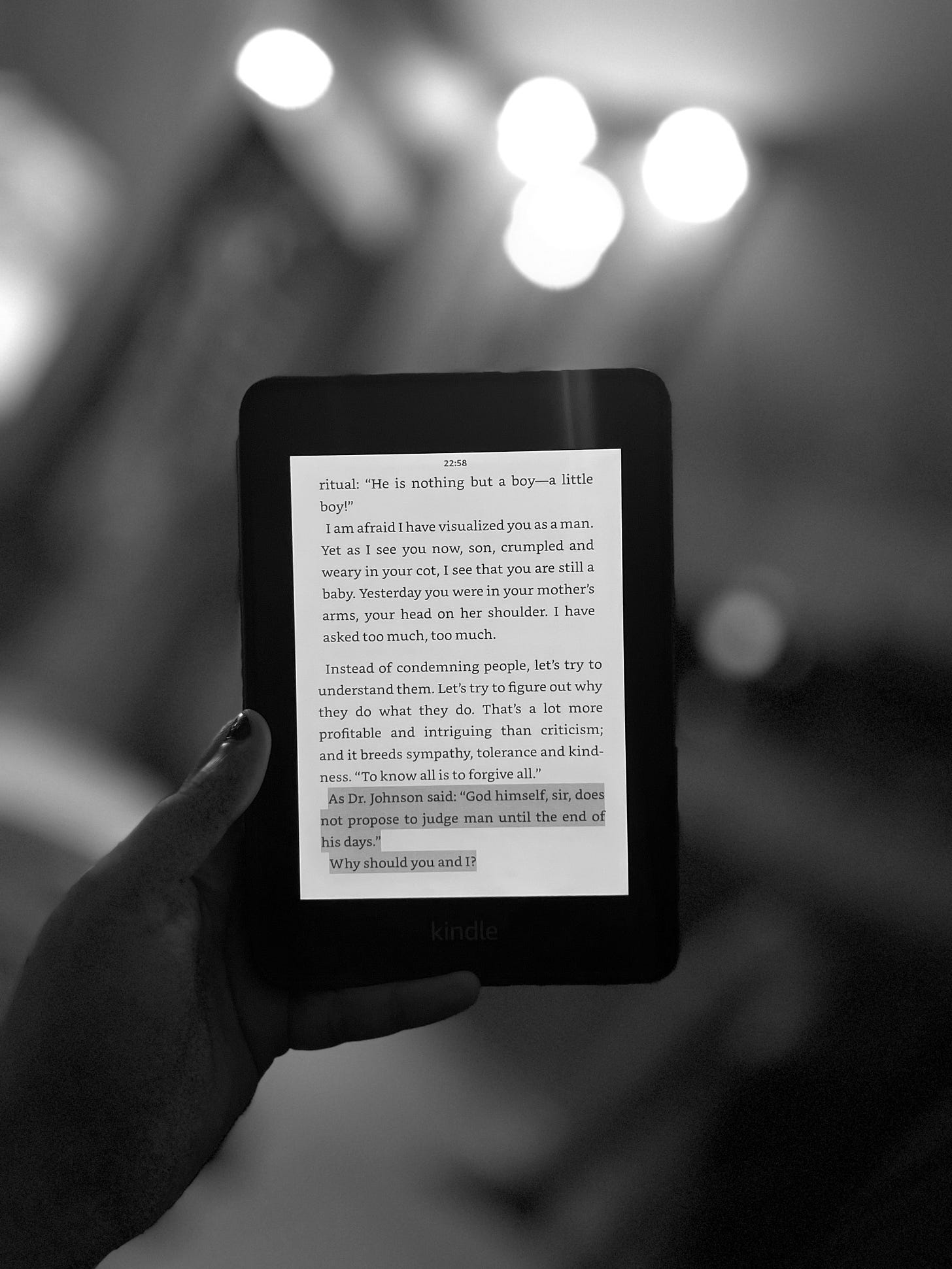How to Win Friends and Influence People by Dale Carnegie
Rushing Less, Thinking More...
Dear Reader,
Some weeks feel like pages dog-eared by dread or fog. If this was one of those weeks for you, come sit with me for a while. How is everything going?
Last week, I did something I don't normally do: I read non-fiction.
Yes, unusual, isn't it? The book? How to Win Friends and Influence People by Dale Carnegie.
But let me confess something right away: Non-fiction and I, we have always had a complicated relationship.
Are you a fiction or non-fiction reader?
Non-fiction has never been my cup of tea, because I always read to escape, to disappear into those moonlit fields, old castles, eerie towns, forests, battlefields, courtrooms…
Most importantly, I read to meet people who never existed and yet feel more real than most I've met. Sometimes I even play detective with language and puzzle over things that don't immediately reveal themselves. Because I love to dig for meaning that isn't handed to me in neat bullet points. That is so much fun for me, to sit with a sentence and ask "What are you really trying to tell me here?"
So, tell me, do you have any tips for me to read non-fiction?
Because to me, it often feels like someone standing on a podium with a loudspeaker going: "Here is what I learned. That was the story. This is the lesson. Here's what to do!" Feels very neat and linear. And yet, I do want to give it more chances, maybe because it does complement the imaginary world I generally wander in.
Anyways, before I started the book, I didn't expect much from Carnegie's book either, and honestly? It didn't surprise me. I won't pretend I loved the book. But there is one tiny thread that I am still chewing on:
Pause. Think. Before responding. Always. Don't rush!
That's it.
That's what I took away from the entire book. Not the techniques for influence or the mechanics of conversation. Just that one idea: Pause.
And oddly, it stuck. Not because it's new, if anything, it's well known. But because it found me at the right time. Recently, I've noticed how quickly I respond to texts, to questions. I am starting to react more lately, to explain, and to defend. Sometimes I'm just speaking to fill the silence. But rarely am I pausing, finding that slowness.
It is so easy to rush into an opinion, a defense, a reply. To choose speed over thought. Our world rewards speed and immediacy. But reflection needs stillness. And it was fiction that first taught me that. To slow down and just be with the story.
So no, I didn't like the book. But I'm grateful for the pause it gave me and have made peace with this little detour. Not everything needs a response right away.
Don't get me wrong! Non-fiction does serve its purpose, similar to how fiction does. Not enemies, but complementary. One gives you structure and the other gives you soul. And yes, I think we need both.
I tried so hard to conclude all this in a single sentence:
Non-fiction often feels like the world of doing, but fiction is the world of being.
I'll go back to fiction, of course. My heart belongs there.
Just curious! What does non-fiction do for you that fiction doesn't? Do you think they spark different parts of your brain? Like one's more about feelings and stories, while the other's more about real-world stuff?
Before You Go! From Here On, Monthly.
P.S. Going forward, I'll be checking in here once a month instead of weekly.
Why? Because lately, I have been sinking deeper into the kind of reading that takes time, something worth sitting with, and allowing space for what truly needs to be said. I don't want to just put content out for the sake of it. I want it to matter.
So at the end of each month, I'll be sending you a summarized monthly reflection: what I've been reading, thinking about, and writing.
If you would like these reflections delivered straight to your inbox, you can subscribe using the button below. One email a month. No noise.
You'll still find me here, just more rooted, less rushed.
Thanks, as always, for reading and being here.
Yours in thought,
Yana




